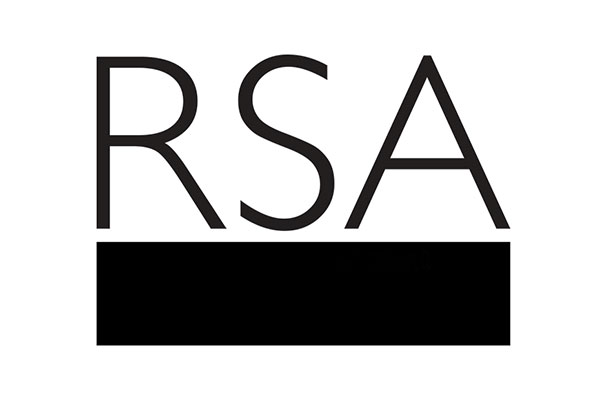One of society’s best inventions is business. A business is a powerful organisational structure that enables groups of people to come together and get things done. But contrary to popular belief, what a business can do isn’t limited to just sales and profit.
Its power and effectiveness can be harnessed for social and environmental good, and it is this insight that is motivating a growing number of companies to become B Corps (the B stands for benefit). Although the idea of running a company for anything but profit might seem counterintuitive to some, it turns out that the movement has business ethics, economic theory and historical precedent on its side.
What are B Corps?
B Corps are businesses that are committed to benefiting society and the environment, as well as their shareholders. They are certified with the B Corp logo, much like the Fair Trade certification for coffee or LEED certification for green buildings. The movement began in the USA in 2006 and has over 1,500 members globally, including listed companies, like Etsy, and well-known brand names, such as Ben & Jerry’s. B Corps recently launched in the UK in September with 62 founding certified companies.
Although there are many businesses that have already embraced Environmental, Social and Governance criteria (ESG), becoming a B Corp requires a further demonstration of commitment. B Corps must embed ESG as a primary objective of their business by changing their constitutional documents and passing a rigorous audit by B Lab covering five areas: governance, workers, community, environment and impact business model. This assess-certify-and commit approach is designed to mark B Corps out as the ‘real deal’ in the sometimes confusing world of Corporate Social Responsibility (CSR), where there can be a nagging concern of corporate whitewashing.
Business is for all stakeholders, not just shareholders
The B Corps movement is about more than just another ESG or CSR measure. By changing business’s mission, B Corps marks a fundamental shift in the purpose of business. It’s a welcome change and one that is best understood as a rejection of Shareholder Value Theory in favour of its rival, Stakeholder Theory.
Shareholder Value Theory in a nutshell
Shareholder Value Theory asserts that the objective of business is to maximise profit for its shareholders. As Milton Friedman put it, “the social responsibility of business is to increase its profits.” Pursuing solely profit, so the theory goes, leads to growth and maximizes output, which can be redistributed by government to pursue social or environmental goals more efficiently. What’s more, because companies are owned by shareholders, they should be run for the benefit of shareholders. Ethically, companies have no responsibility towards any other parties, except possibly insofar as they shouldn’t harm them.
Stakeholder Theory in a nutshell
Stakeholder Theory, by contrast, sees business as a collaborative enterprise between all of its stakeholders towards a common purpose. Business is not just a legal entity, but an organizational nexus of contracts, norms, interests, values and purposes, that are co-ordinated efficiently by what Edward Freeman has called the business’s Enterprise Mission. The focus of the Enterprise Mission is the product or service – a car or an internet search engine – but underlying this is a desire to improve somebody’s situation or solve a group problem – a car enables moving and travelling, an internet search engine facilitates seeking information and knowledge. The stakeholders a business brings together are shareholders, financiers, managers, employees, customers, suppliers, communities and the environment. Profit is vitally important and shareholders are a major interest group, but a firm can only exist and thrive with the support of all its stakeholders and so it should also be run in these stakeholders’ interests too.
The ethics of Stakeholder Theory
In business ethics, businesses have moral obligations to benefit all of their stakeholders. This follows for two reasons:
- Stakeholders are part of the firm: the stakeholders are part of the fabric of the firm, even if this is not reflected in the legal structure of ownership.
- All people have moral obligations: every decision-maker in the business is ultimately a person and, because of this, a moral agent with their own obligations. The strength and clarity of these moral obligations is a subject of debate in business ethics, but this sense that work is more than ‘just a job’ and carries some wider moral responsibilities is reflected in the changing attitudes of Millennials and the growing desire for purposeful work.
The economics of Stakeholder Theory
Economically, Stakeholder Theory works better than Shareholder Value Theory for four reasons:
- The goal of our economy is welfare, not profit: profit isn’t the only thing people care about. The goal of our economic institutions isn’t to achieve maximum corporate profitability, but to improve our lives – our health, our education, our relationships, our environment, our overall satisfaction with the quality of the lives we lead. Running a business in a way that directly contributes towards the things we value is a better method than the often misplaced hope that profit maximization will somehow lead indirectly to these ends.
- Profit maximization can lead to market failures: narrow profit maximization can lead to market failures, such as harmful external effects (externalities in the economic jargon) that pollute the environment and require corrective taxes or regulation. These problems persistently crop up, as demonstrated by the recent Volkswagen and ExxonMobil scandals.
- Shareholders are ultimately stakeholders: stakeholder value is the right objective because shareholders and stakeholders are one and the same. Since shareholders are pension funds, they are pensioners and employees. And since shareholders are retail savers using ISAs and Child Trust Funds, they are you and me and our children. Obviously, the distribution of ownership is weighted towards the wealthier stakeholders, but nonetheless following a shareholder through the chain of intermediated finance to its ultimate owner leads right back to the same place – the stakeholder.
- Stakeholder theory often maximizes long-term profits: B Corps are finding that benefiting their stakeholders is actually the best way to improve shareholder profits. It creates brand differentiation and customer loyalty. It attracts talented employees who work harder and smarter for the company. And it fosters a longer-term perspective that avoids the counter-productive pitfalls of shareholder short-termism. Indeed, in practice, Stakeholder Theory is often (albeit, not always) equivalent to enlightened Shareholder Value Theory.
The history of Stakeholder Theory
Although the B Corps movement is new, there are and always have been socially beneficial corporations in business. From Classical Greece, through the Guilds of the Medieval period to the Victorian capitalist social reformers, business was expected to serve the wider community.
Many businesses today also see their purpose much more widely than just profit maximization. Johnson & Johnson, the $74bn revenue medical and consumer goods business, has had a corporate Credo since 1943 that sets out its responsibility to “the communities in which we live and work and to the world community as well.”
B Corps as Stakeholder Theory in action
The B Corps movement understands the advantages of Stakeholder Theory. It is reflected in the legal change required to become a B Corp: companies must alter their stated purpose so that they benefit shareholders but also stakeholders by having “a material positive impact on society and the environment.” B Corps members are benefiting stakeholders in various ways: Etsy is strengthening communities by supporting local producers and ClimateCare is improving the environment by selling carbon offsets.
What is exciting about the B Corps movement is its reassertion that business can, and always has, played a role in improving society. It validates business owners, managers and employees, who feel this is what their business is or should be about. It is being embraced with energy by passionate and talented companies and unleashes one of business’s greatest capabilities – its creative and innovative approach to solving problems. B Corps have a grand mission to be “not just best in the world, but best for the world.” Ethics, economics and history suggest this is exactly what they can and should be.
Related articles
-
London FRSA calls on Fellowship to help with Sustainable Pop Up Project
Hannah McCollum FRSA
Hannah McCollum FRSA, who pitched her project ChicP at RSA Engage: Creating a Sustainable Future in London earlier this year, tells us more about it and calls on the Fellowship to help further her cause.
-
WOVEN Festival
Kath Davies
WOVEN is a new festival celebrating innovation in textiles that is being piloted this year between the 8th to the 16th June.
-
Empowering Women farmers in Vietnam
Alison Kwan
How Alison Kwan FRSA, winner of RSA Catalyst Seed Grant, is using the Grant to create an innovative, sustainable way to empower Women in Central Vietnam to be independent farmers.



Be the first to write a comment
Comments
Please login to post a comment or reply
Don't have an account? Click here to register.